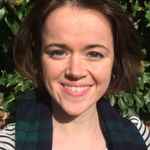Study programme
-
Philosophy of Science for Urban and Development StudiesPeriod 16
This course in urban and development studies explores various epistemological and ontological approaches across disciplines, fostering the ability to analyze and evaluate their use in academic literature and policy. Students will critically reflect on these approaches, including positivism, critical realism, and constructivism, forming their own positions through written and verbal presentations on terms like 'urban,' 'development,' and 'poverty.' The course also delves into the dialectical relationship between structure and agency, encompassing recent perspectives on more-than-human approaches.
-
Theories, Issues & Debates in International Development StudiesPeriod 19
This course covers key theoretical debates and contemporary issues, exploring the political economy of development, colonialism, globalization, poverty, gender, and more. Students will critically assess global and historical perspectives, examining the role of various actors from states to NGOs. The course also emphasizes the culture and politics of representation in shaping development policy.
-
Research Design: Mixed MethodsPeriod 46
This course introduces students to mixed methods approaches in International Development Studies, focusing on epistemological and methodological perspectives. Students will engage in debates, articulate the need for mixed methods in societal problem-solving, and learn about various research designs. The course covers philosophical foundations, design choices, and inferences in mixed methods research, preparing students to develop their own research proposals in subsequent courses.
-
Purpose, Portfolio and Proposal DevelopmentPeriod 4Period 5Period 612
This course prepares students for fieldwork and research proposal development. By the end of the course, students will reflect on their professional goals, design a portfolio plan, and create a research proposal with a focus on ethical standards and safety. The co-created approach enhances students' agency and responsibility in their learning trajectories through collaboration with peers and lecturers.
-
Re-imagining International Development StudiesPeriod 1Period 2Period 3Period 4Period 5Period 66
This newly introduced course in International Development Studies focuses on innovative, practice-oriented approaches to prepare students for future roles as change agents. It covers subjects like regenerative development and decolonising theory, emphasizing skills in designing and implementing developmental projects and collaborating with diverse stakeholders. By the end, students will have gained experience, skills, and capacities to communicate and collaborate effectively in inclusive ways.
-
Restricted-choice electives: Thematic IDS ElectivesPeriod 212
You may choose from two thematic electives. These electives may change from each year, but in the current curriculum they are: Sustainable and inclusive economics, Migration and development, Urban perspectives in development, The capitalocene: understanding unequal exchange and environmental conflict, Intersectional feminist engagements with development policies and practices, Critical development theory and social movements
-
Restricted-choice electives: Method ElectivesPeriod 3Period 4Period 512
The current methodological electives being offered are: Introduction to geographical information systems, Advanced geographical information systems, Data and measurement, The practice of ethnographic research, Research skills: ethnography and beyond, Working with quantitative data, Policy oriented research, Analysing talk and language: discourse and conversation analysis, Computational social science analysis

Embrace the extended fieldwork opportunityAlumna Maria Hagan about the Research Master's International Development Studies